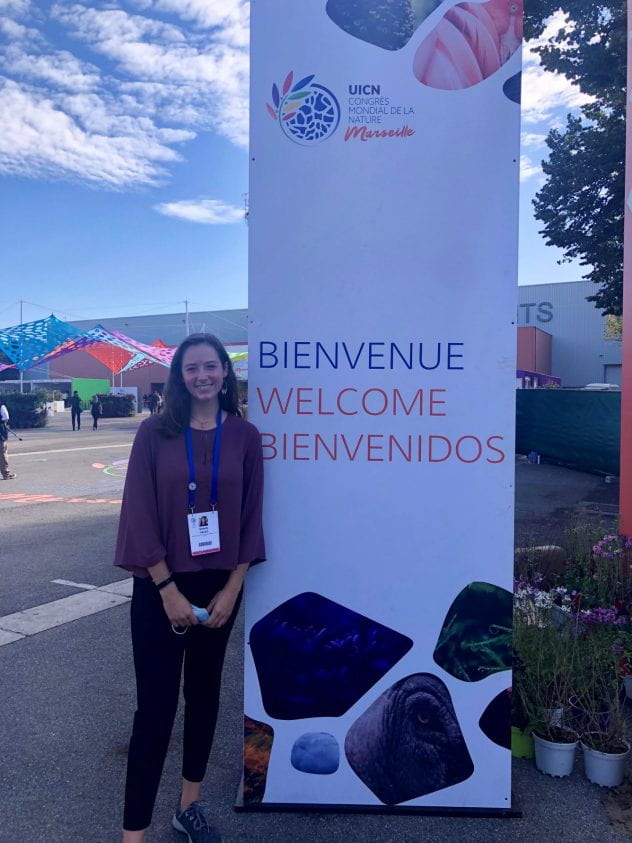Originally Posted: October 10, 2021
This post was written by Isabelle Galko ’22, a Highland Capital Management Tower Scholar. She is majoring in Environmental Science with minors in Human Rights and Public Policy and International Affairs. She is also a President’s Scholar, a member of the University Honors Program and assistant editor of SMU’s Journal of Undergraduate Research.
The International Union for Conservation of Nature (IUCN) is a global organization that works on nature conservation and sustainable use of natural resources. Every four years, IUCN convenes a World Conservation Congress—a global meeting that serves as an assembly of leaders and decision-makers from government, academia, society, indigenous cultures, and industry working towards conserving the environment at a global level. After completing a project on marine pollution and coral reefs, I proposed a session at the Congress in 2019 about understanding how individuals interpret and respond to environmental communication as a predictor of future sustainable action. By showcasing community-based conservation projects, the session would present a model of practices that could be used to establish action plans for other communities, catalyze action, and build momentum for activating young female leaders. My proposal was accepted and I was invited to present at the 2020 IUCN World Conservation Congress. Due to COVID-19, traveling to Marseille became impossible in 2020 and the conference was rescheduled twice. I was overjoyed when I was able to attend the conference in person in September 2021!
My presentation for the forum at IUCN was converted into a virtual poster titled, “Preparing Families to Act as Stewards to Combat Climate Change and Restore Ocean Health.” The poster showcases three projects (including my own) that offer suggestions for activities designed to increase individual stewardship and mitigate climate change risks in local communities. The presentation specifically focused on young, female leadership in conservation and I spoke about the importance of mentorship networks and using the featured projects as models for future female- and youth-led community-based initiatives. While attending the conference in person, I was also able to present my project and work with the IUCN’s Commission on Education and Communication over 10 days.
IUCN has six commissions: I am a member of the Commission on Education and Communication (CEC). The CEC has over 2,000 members, which include conservation organizations and educators across the globe. The Commission’s current focus is an initiative called #NatureForAll, which promotes equitable access to nature in order to cultivate love and appreciation for nature, with the goal to increase conservation of nature. The CEC has a specific focus on youth movements for nature and climate. When I arrived in Marseille, I immediately got to work setting up the CEC’s “Youth Oasis,” where I would be connecting with other young conservation leaders from around the world, helping put on interactive programs for the conference and sharing information about #NatureForAll.
The highlights of attending the IUCN conference were getting to attend sessions and even sit in on the Member’s Assembly. The first night, I got to see French President Macron and the actor Harrison Ford speak at the opening ceremony! All week, when I wasn’t at the Youth Oasis, I attended sessions on many different topics, including the blue economy, environmental law, sports and biodiversity, and amplifying indigenous voices in conservation. I had the opportunity to hear and learn from amazing experts, including the Prince of Monaco, environmental law professors, the United Nations Special Envoy for the Ocean, and National Geographic explorers. The conference ran from early morning to late at night. In the evenings, I talked and networked with CEC members, IUCN commissioners, and other university students about their work in conservation.
I learned so much in Marseille, but my biggest takeaway from IUCN is that future approaches to address environmental challenges must be transgenerational, intersectional, and inclusive. Ultimately, conservation must be recentered around people. That means putting local communities at the heart of nature and working towards greater collaboration with indigenous groups, the private sector, and young people. READ MORE
